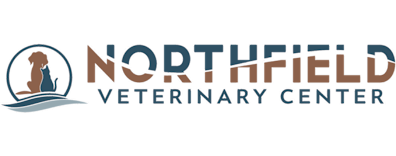Northfield Veterinary Center
Cardiology

Overview
Veterinary cardiologists diagnose and treat heart problems in pets. Your pet’s heart is vital to their health and well-being, and heart disease can impact their body’s delicate balance. Although a heart disease diagnosis is concerning, many conditions can be managed with the help of a veterinary cardiologist.
Heart disease in pets
Cats and dogs can experience many different types of heart conditions, including congestive heart failure, chronic valvular disease, dilated cardiomyopathy (DCM), hypertrophic cardiomyopathy (HCM), arrhythmias, hypertension, and pericardial effusion.
In many cases, especially in the early stages, signs of a heart issue may be subtle. As the condition progresses, more obvious signs may include:
Weakness
Difficulty breathing
Tiring quickly when exercising
Increased respiration rate
Coughing
Fainting
Collapse
Pets with heart conditions can benefit from the expertise of a board-certified cardiologist. These individuals are licensed veterinarians who undergo additional intensive training in veterinary cardiology and complete the American College of Veterinary Internal Medicine (ACVIM)’s extensive certification process. This training allows them to provide the best care and prognosis for pets with heart conditions.
Cardiology diagnostics
Our Northfield Veterinary Center team partners with a mobile board-certified veterinary cardiologist to offer in-person cardiology consultations. Non-invasive tests we offer include:
Cardiology exam — Clinical examination is a vital tool when evaluating your pet’s heart. The cardiologist will assess your pet’s overall appearance, evaluate their pulse at several key sites, and auscultate their heart, listening for murmurs and arrhythmias.
Electrocardiogram (ECG) — An ECG records the electrical activity of your pet’s heart, which correlates with how their heart beats. The cardiologist places sensors called electrodes on opposite sides of your pet’s chest, and the heart’s activity appears as waves on an attached computer monitor.
Echocardiogram — An echocardiogram is an ultrasound of the heart that helps assess the heart’s structure and function. This real-time imaging technique provides a detailed view of the heart and is used to:
Measure the heart’s shape and size
Evaluate how well the valves function
Assess communication between the left and right sides of the heart
Measure the speed of blood leaving the heart
If your pet has a heart issue that can benefit from a cardiologist’s experience and expertise, contact us to make an appointment.
